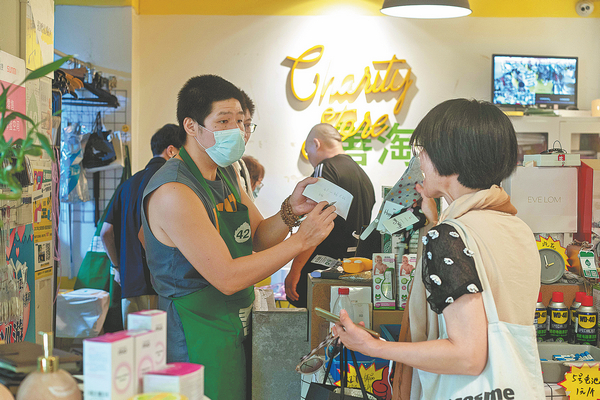Retail therapy, with empathy


A trendier kind
Generally, stores run under the first model are more low-key in nature.
Those managed using the second are deemed to be more popular with the general public.
"We are pleased to see that social organizations and other social forces have independently established charity stores which offer a wider range of goods, serve a more diverse range of beneficiaries and have a broader market appeal, compared to traditional charity stores," says Zhu Qinhao, director of the Shanghai Civil Affairs Bureau.
Among the most popular of the stores run by social organizations is the Buy42 Charity Store on Jiangning Road in Jing'an district.
Featuring a design that is reminiscent of a grocery shop, the store has been a major hit with young consumers, many of whom flock to the place to take photos that they can post on social media.
Filled with a wide range of goods, including colorful and fashionable socks, kitchenware, clothing and even vintage books, the shop is just one of the 42 that social enterprise Buy42 operates in Shanghai.
"We hope to use the down-to-earth vibe of a grocery store to promote charity stores and help them flourish within communities," says Jiang Shujie, chief executive officer of the social enterprise.
"Our intention is to bring the concept of charity stores, which are commonly found abroad, to China so that we can promote eco-friendly consumption and help people understand that our lives can be just as fulfilling without the excessive consumption of resources."
Last year, the organization received 259,469 items worth around 6.8 million yuan ($932,766) — an 8.18 percent increase in donated value compared to the previous year — from 84 companies. Notably, there was a 54.44 percent increase in the value of donated personal goods that were unused, a sign that the public is getting increasingly involved in the business of doing good for others.




































